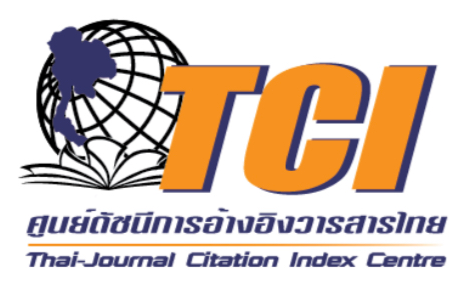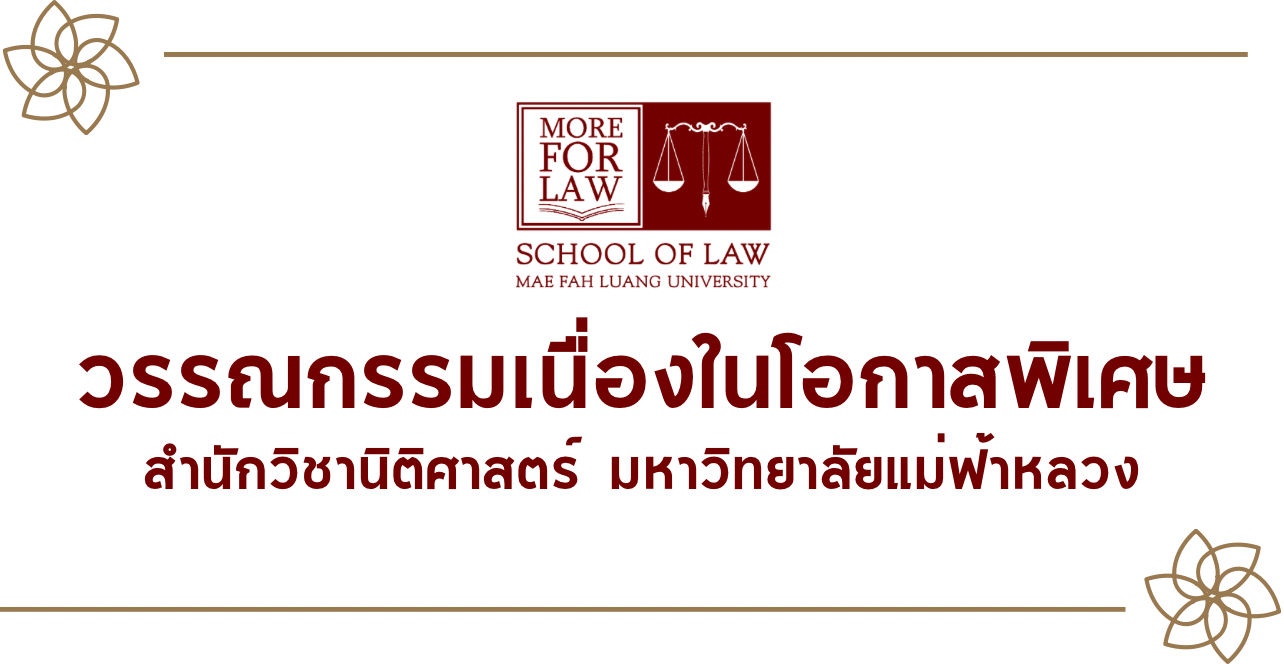The Right to Be Forgotten under the Personal Data Protection Act B.E. 2562
DOI:
https://doi.org/10.14456/mfulj.2021.1Keywords:
Right to Be Forgotten, Right to Privacy, Personal Data Protection Act B.E. 2562Abstract
The right to be forgotten can be defined as a data subject’s right to request a data controller to erase or destroy his personal data. The right to be forgotten is established in Article 33 of the Personal Data Protection Act B.E. 2562 (2019). The right to be forgotten also involves the right to privacy under the Thai constitution. A data subject cannot use the right to be forgotten independently, but complies with conditions under Article 33 (1) - (4). Since the right to be forgotten is not absolute, it may have limitations or exceptions. Further, the right to be forgotten can be violated when a data controller does not erase or destroy personal data. A data controller may confront civil and administrative liability.
Downloads
References
ประสิทธิ์ จงวิชิต. ประมวลกฎหมายแพ่งและพาณิชย์ว่าด้วยละเมิด จัดการงานนอกสั่ง และลาภมิควรได้. พิมพ์ครั้งที่ 2. กรุงเทพมหานคร: มหาวิทยาลัยรามคำแหง, 2552.
ไพโรจน์ วายุภาพ และสิทธิโชค ศรีเจริญ. คำอธิบายประมวลกฎหมายแพ่งและพาณิชย์ว่าด้วยประกันภัย. กรุงเทพมหานคร: จิรรัชการพิมพ์, 2541.
โสภณ รัตนากร. หนี้. พิมพ์ครั้งที่ 4. กรุงเทพมหานคร: นิติบรรณการ, 2542.
อัครวิทย์ สุมาวงศ์. คู่มือการศึกษาประมวลกฎหมายแพ่งและพาณิชย์ว่าด้วยนิติกรรมสัญญา. กรุงเทพมหานคร: เนติบัณฑิตยสภา, 2543.
Aileen Nielsen. Practical Fairness: Achieving Fair and Secure Data Models. California: O’Reilly, 2020.
Andrea Monti and Raymond Wacks. Protecting Personal Information: The Right to Privacy Reconsidered. Oxford: Hart Publishing, 2019.
Andrew Murray. Information Technology Law: The Law & Society. New York: Oxford University Press, 2019.
Daniel J. Solove and Paul M. Schwartz. Consumer Privacy and Data Protection. Third Edition. New York: Wolters Kluwer, 2020.
Els J. Kindt. Privacy and Data Protection Issues of Biometric Applications: A Comparative Legal Analysis. New York: Springer, 2013.
Erica Howard. Freedom of Expression and Religious Hate Speech in Europe. Abingdon: Routledge, 2017.
Franz Werro. The Right To Be Forgotten: A Comparative Study of the Emergent Right’s Evolution and Application in Europe, the Americas, and Asia. Cham: Springer, 2020.
Graham Stephenson. Sourcebook on Torts. Second Edition. London: Cavendish Publishing, 2000.
Helen Fenwick. Civil Liberties and Human Rights. Third Edition. London: Cavendish Publishing, 2002.
Jacob Rowbottom. Media Law. Third Edition. New York: Hart Publishing, 2018.
Jerri L. Ledford. SEO: Search Engine Optimization Bible. Indianapolis: Wiley Publishing Inc., 2008.
Johannes Morsink. The Universal Declaration of Human Rights and the Challenge of Religion. Missouri: University of Missouri Press, 2017.
Kalpana T.M. and S. Gopalakrishman. “Green Economic and Secure Libraries on Cloud.” in Cloud Computing and Virtualization Technologies in Libraries, Sangeeta N. Dhamdhere, 297. Pennsylvania: Information Science Reference, 2014.
Laurence R. Helfer and Graeme W. Austin. Human Rights and Intellectual Property: Mapping the Global Interface. New York: Cambridge University Press, 2011.
Michael E. Whitman and Herbert J. Mattord. Principles of Information Security. Third Edition. Massachusetts: Thomson, 2009.
Paolo Balboni and Theodora Dragan. “Big Data: Legal Compliance and Quality Management.” in Big Data Management and Processing, Kuan-Ching Li, Hai Jiang, and Albert Y. Zomaya, 6. Florida: Taylor & Francis, 2017.
R.M. Tracy. Reduce Your Risk of Credit Fraud & Identify Theft. Colorado: The Privacy Trust Group, 2005.
Raymond Wacks. Privacy: A Very Short Introduction. Second Edition. New York: Oxford University Press, 2015.
Richard E. Smith. Elementary Information Security. Massachusetts: Jones & Barlett Learning, 2019.
Robert Kazemi. General Data Protection Regulation (GDPR). Hamburg: Tredition, 2018.
Robert H. Sloan and Richard Warner. Unauthorized Access: The Crisis in Online Privacy and Security. New York: Taylor & Francis Group, 2014.
Ugo Pagallo and Massimo Durante. “Legal Memories and the Right to Be Forgotten.” in Protection of Information and the Right to Privacy - A New Equilibrium?, Luciano Floridi, 19. New York: Springer, 2014.
Walter Kalin and Jorg Kunzil. The Law of International Human Rights Protection. New York: Oxford University Press, 2009.
Downloads
Published
How to Cite
Issue
Section
License
Copyright (c) 2021 Mae Fah Luang University Law Journal

This work is licensed under a Creative Commons Attribution-NonCommercial-NoDerivatives 4.0 International License.






